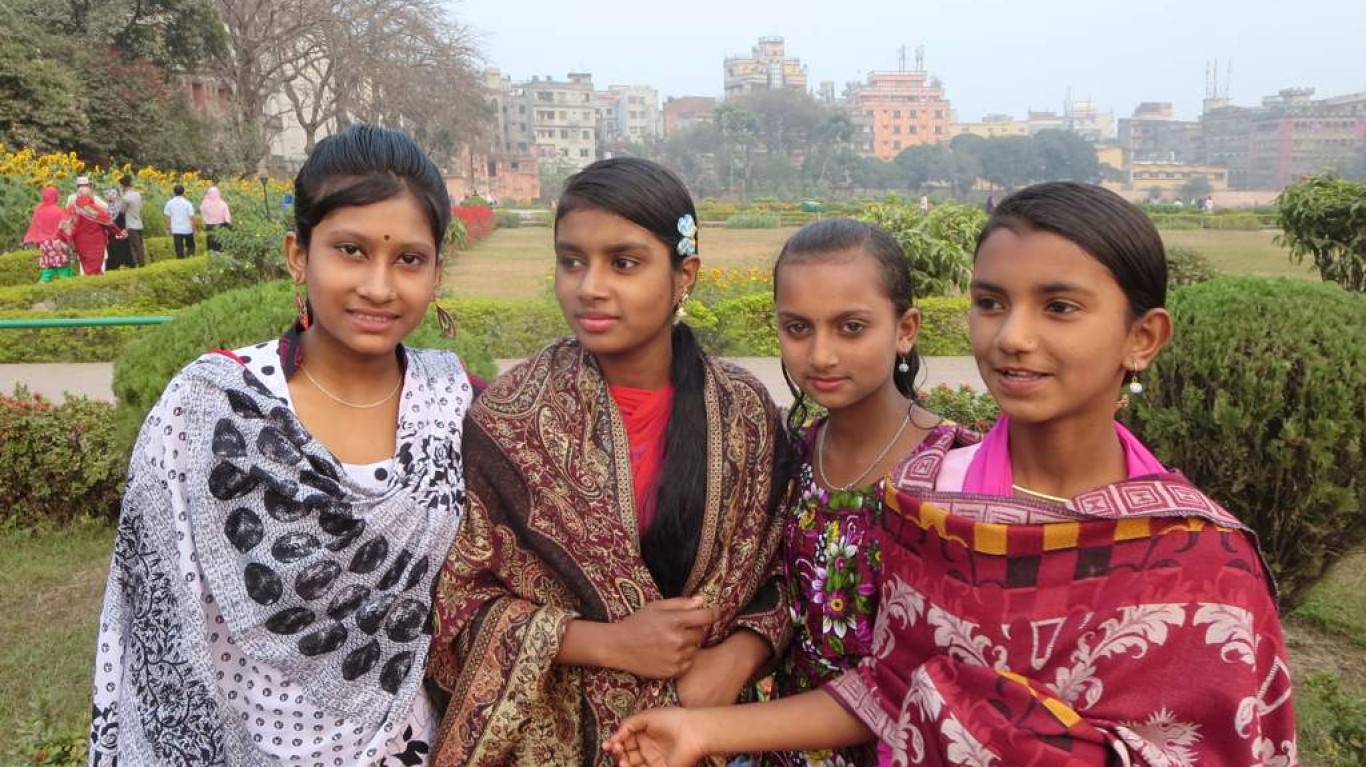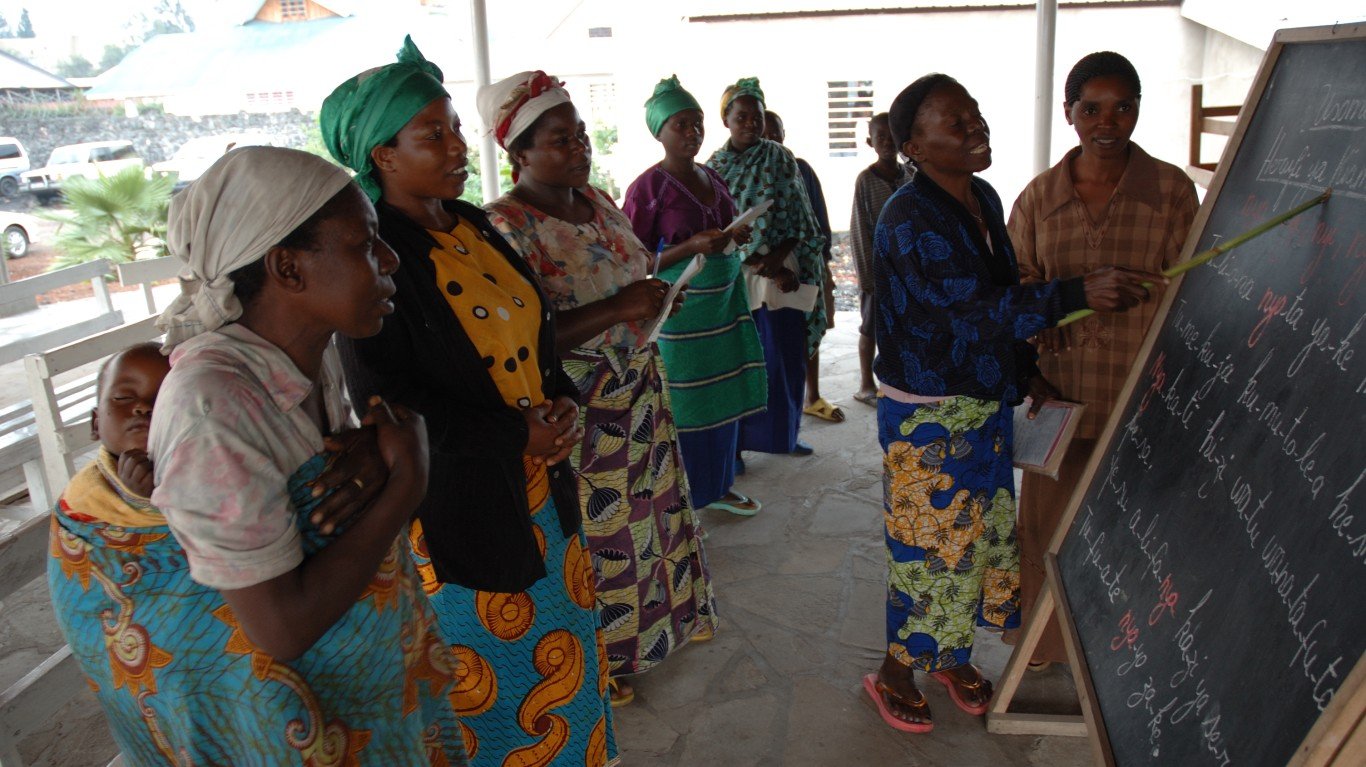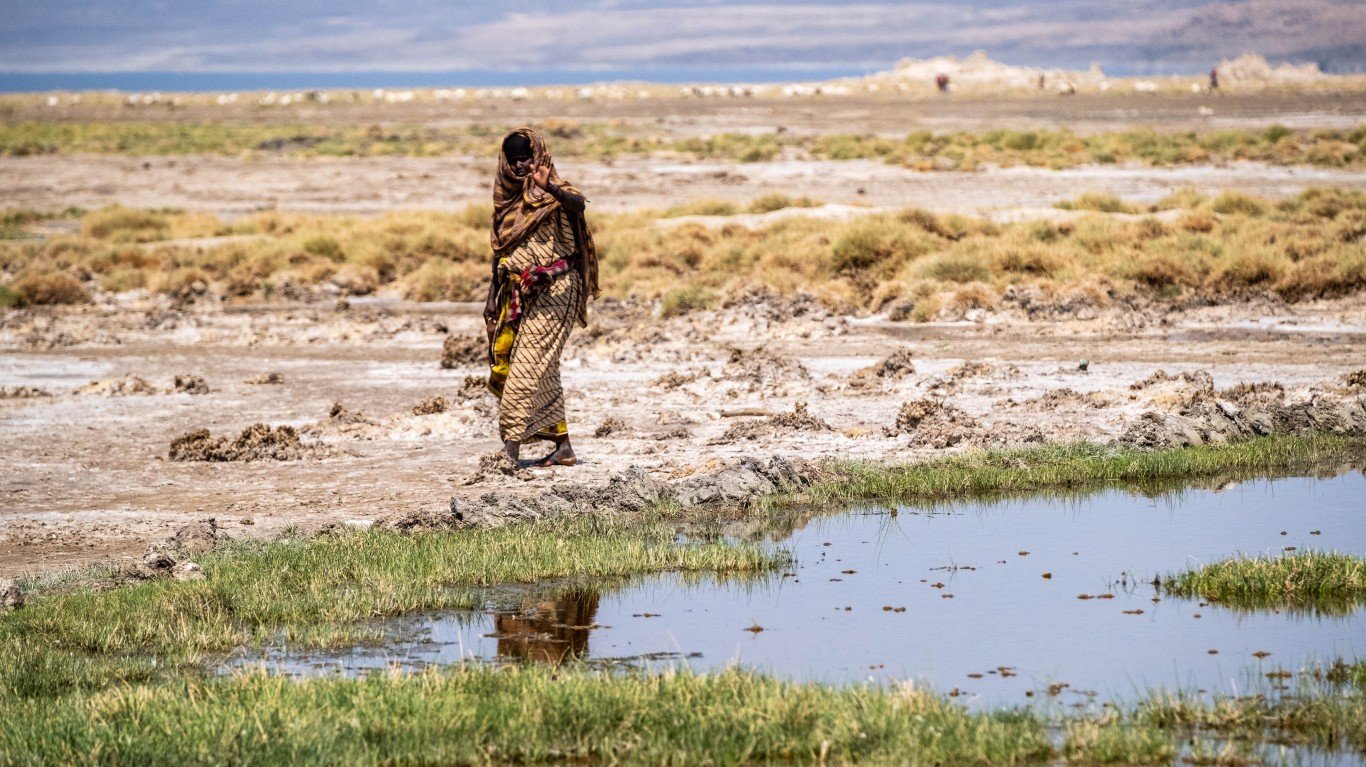
20. Djibouti
> Women Peace and Security Index (0 worst to 1 best): 0.595
> Women’s mean years of education: 5.4, #41 worst of 170 countries
> Pct. of women w/bank account: 8.8%, #6 worst of 170 countries
> Absence of legal discrimination (0 worst to 100 best): 68.1 – #41 worst of 170 countries
> GDP per capita, 2021: $3,150, #58 lowest of 170 countries
> Population, 2021: 1,105,557 (females: 556,667, 50.4%)
Though female genital mutilation has technically been illegal since the 1980s in this East African country bordering Eritrea, Ethiopia, and Somalia, it remains a popular traditionwith 78% of women and girls subjected to the practice, according to UNICEF. Only 41% of women in the country have cell phone access, an unusually low rate even among the poorest countries. About 27% of women have been targets of intimate-partner abuse, more than twice the worldwide average.
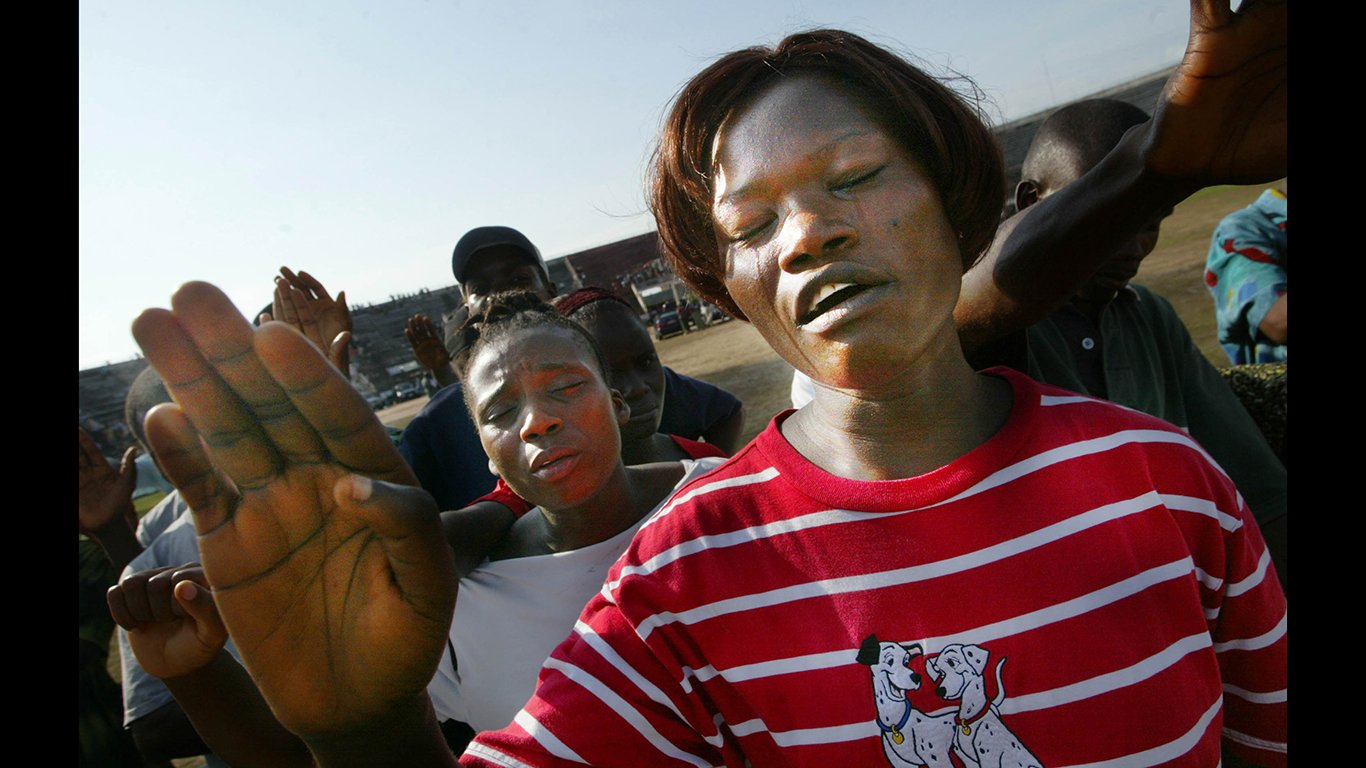
19. Liberia
> Women Peace and Security Index (0 worst to 1 best): 0.594
> Women’s mean years of education: 3.5, #18 worst of 170 countries
> Pct. of women w/bank account: 28.2%, #35 worst of 170 countries
> Absence of legal discrimination (0 worst to 100 best): 83.8 – #105 worst of 170 countries
> GDP per capita, 2021: $676, #14 lowest of 170 countries
> Population, 2021: 5,193,416 (females: 2,608,243, 50.2%)
In 2022, Liberia Amended its nationality law to allow men and women to confer nationality to their children even if one of the parents is not a Liberia citizen. Before the passage of the law, only the children of Liberian men enjoyed “jus soli,” or birthright citizenship. “Gender discrimination in nationality laws remains a primary cause of statelessness among children,” Gillian Triggs, the U.N. Refugee Agency’s assistant high commissioner for Protection, said in a statement responding to Liberia’s reform. The 2021 WPS report estimates more than one out of four Liberian women in the country have reported being abused by an intimate partner, more than double the worldwide average.
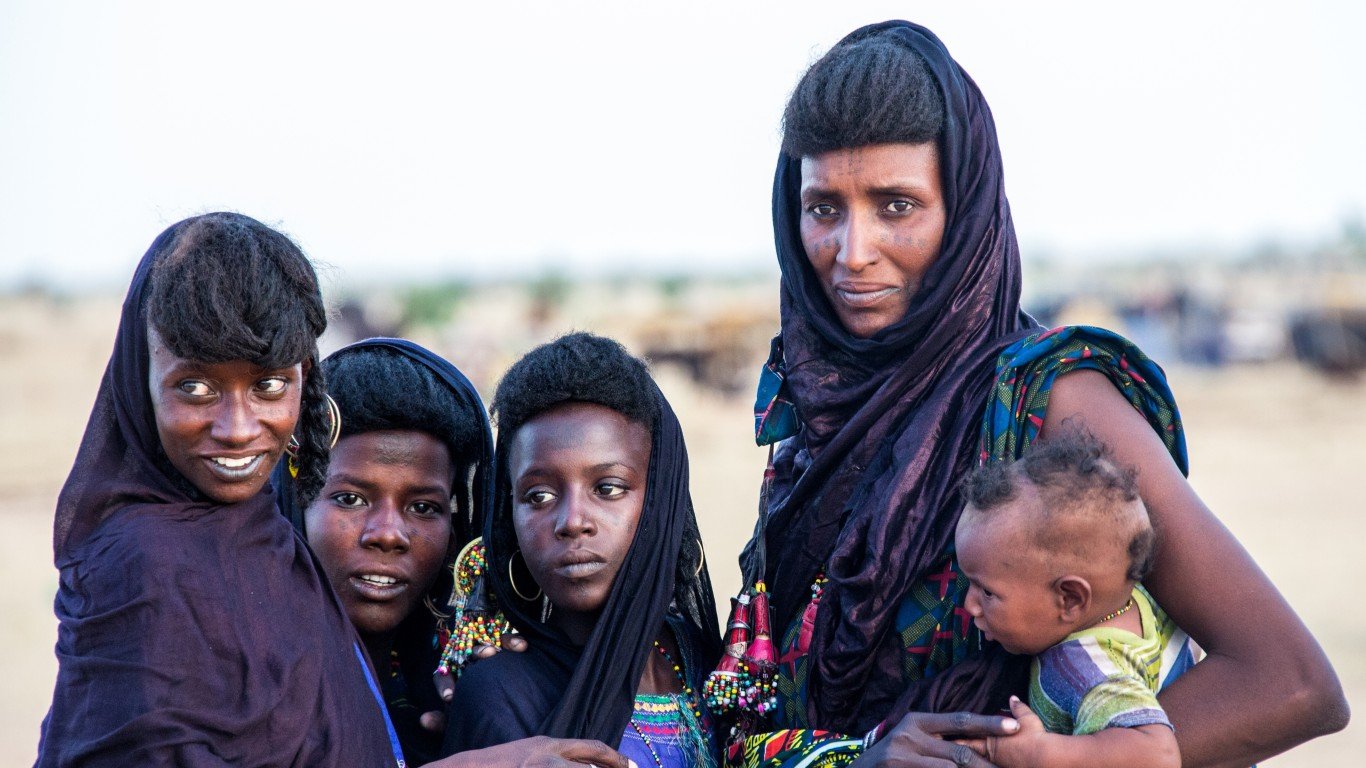
18. Niger
> Women Peace and Security Index (0 worst to 1 best): 0.594
> Women’s mean years of education: 1.4, #3 worst of 170 countries
> Pct. of women w/bank account: 10.9%, #9 worst of 170 countries
> Absence of legal discrimination (0 worst to 100 best): 59.4 – #28 worst of 170 countries
> GDP per capita, 2021: $591, #12 lowest of 170 countries
> Population, 2021: 25,252,722 (females: 12,443,587, 49.3%)
The Niger government implemented in 2019 an order allowing married and/or pregnant girls to continue their studies after giving birth. Unfortunately, according to Human Rights Watch, it is still common to force girls or young women to marry the men who impregnate them even in the cases or rape. The group U.N. Women estimates that 76% of women aged 20-24 in Niger were married before they turned 18. Nigerien women also have unusually low cellphone use, even by the standards of developing countries, at just 44%.
17. Bangladesh
> Women Peace and Security Index (0 worst to 1 best): 0.594
> Women’s mean years of education: 6.0, #46 worst of 170 countries
> Pct. of women w/bank account: 35.8%, #53 worst of 170 countries
> Absence of legal discrimination (0 worst to 100 best): 49.4 – #16 worst of 170 countries
> GDP per capita, 2021: $2,458, #52 lowest of 170 countries
> Population, 2021: 169,356,251 (females: 85,358,163, 50.4%)
Human Rights Watch estimates that nearly 60% of Bangladeshi girls are married before they turn 18, the highest rate in Asia and the fourth-highest globally. The legal definition of rape only covers sexual violence committed by men against women to whom they are not married. Only 35% of women in the country are employed, while nearly one in four have been targets of intimate-partner violence. On a brighter note, a Bangladeshi high court ruled in January 2023 that single mothers are allowed to be the sole guardians of children for school enrollment purposes.
16. Republic of the Congo
> Women Peace and Security Index (0 worst to 1 best): 0.582
> Women’s mean years of education: 6.1, #50 worst of 170 countries
> Pct. of women w/bank account: 21.0%, #20 worst of 170 countries
> Absence of legal discrimination (0 worst to 100 best): 49.4 – #16 worst of 170 countries
> GDP per capita, 2021: $2,290, #49 lowest of 170 countries
> Population, 2021: 5,835,806 (females: 2,921,372, 50.1%)
According to the OECD’s Social Institution & Gender Index, laws in the Republic of Congo do not provide women with the same rights as men in marriage, divorce, or inheritance; disproportionately sanctions women for adultery, which is criminalized; and still permit child marriage of girls despite a law against it. About one in three women are subjected to violence from an intimate partner, according to the 2021 WPS Index, the fifth highest rate of the 170 countries reviewed.
